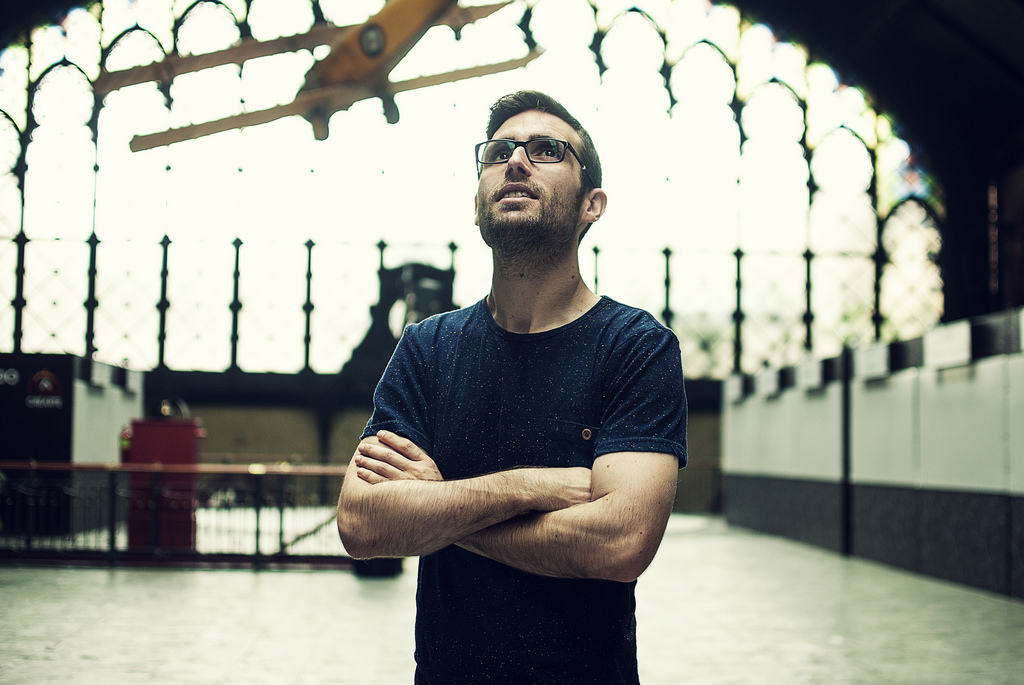“Anything worth doing is worth doing poorly – until you can learn to do it well.” – Zig Ziglar
I remember that first cold, black night well. It was early December 2013 and I finally gave in to my wife encouraging me to go running with her.
So I donned my sweater, shorts, and trainers, picked up a torch and struggled through the 2.5-mile round run to our village pub and back.
At 31, it was my first serious run for probably a decade. It was painful, and I was very tired when we got home, but something had woken in me. It was just enough to make me run again the next night.
In the three full years since then, I’ve averaged almost 1,000 miles a year and run more than 15 half-marathons, including the 2015 Great North Run.
The First Lesson
I am three stone lighter, and as fit and as happy with my body as I’ve ever been in my life.
Yet, had I given up after that first short but hard run in December 2013, none of this would have happened. I could have thought: Man, this is too hard, I’m not doing this again. Had I done that, I’d probably still be a bit of a couch potato, a 16-stone man wanting to weigh 13 stones, but having no idea of how to get there.
The most interesting thing, however, when I look back, isn’t how hard that first run was, or even how hard the second and third runs were. It is that for the first six weeks or so, I was still struggling to run 2.5 miles. But in mid-January 2014, I started wanting to run further. I took it up to three miles, then nearer four.
Then in the middle of March 2014, one weekend I ran five miles on Saturday and seven on Sunday. A week later I did my first ten-mile run. That month I ran over 84 miles, which is about what I do now – in January and February I had done just 53 miles and 56 miles respectively.
After a few months my weight was still around 16 stones, but then over the next few weeks I began dropping the pounds. By late summer 2014, I was down to 13 stones.
I know this because my brother got married in April 2014, and my wife and I married in September 2014. I look far lighter and healthier in the photos from the latter wedding than the former, just five months earlier.
This is a key lesson at the moment because we are early in 2017. Many people will have started exercise regimes in the New Year – running, going to the gym etc. – and many will already have quit because they are not seeing any progress.
The late Greg Plitt compares a new fitness regime to pottery – you have to spend time warming the clay before you can mold it. You spend time warming it up – and it doesn’t look like anything is happening – but all the time you are warming it until, eventually, you can mold the clay into any shape you want.
I have learned that it is the same with any goal. You start, and it seems like you are not going anywhere. You are tempted to quit because it is difficult, and you are not seeing any progress. But in reality, you are making progress beneath the surface: you are doing vital foundation work.
So that was one lesson in perseverance; one that has benefitted me in other areas of my life and one that I use to help my clients.
The Second Lesson
It hasn’t all been plain sailing (or running) of course. In June 2015 I suffered a herniated disc in my back. It was over five weeks until I could run again, and it was frustrating that I seemed to have lost a lot of fitness.
That 2.5-mile round trip to the pub was difficult again. I did sometimes wonder if it was worth going through all of the effort again to be able to comfortably run longer distances again, but I remembered how happier I had been with my fitness since starting running a year and a half earlier.
I also had a big goal: the Great North Run in September 2015. Visualizing my recovery and finishing the Great North Run had helped keep my morale up while I’d been injured, so I had to work myself up towards that.
In the end, I did the Great North Run in under two hours as I’d intended, and was proud to raise almost £500 for the North West Air Ambulance service in the process.
So this is the second lesson that running has taught me about achieving goals: there will always be setbacks, but you have to get through them if you are going to do what you want to do. Sometimes the setback will knock you back two steps, or even almost back to the start, but we can always recover to where we used to be, and then move forward even further.
A Sudden Leap Forwards
If our goal is something important, then we can power our way through the struggles as we learn the way and obstacles that either block our path or even temporarily push us backwards.
Even when it seems we are getting nowhere, we are always becoming better, fitter, more knowledgeable etc.
Then we are likely to make what seems initially like a huge leap, but with hindsight, you see that you were always getting better, and it was actually a natural next step from where you were.
Is it worth the struggle? For me, it was. I am a fitter and happier person now.
Only you can decide whether what you want is worth the effort. But going into it with an understanding of the effort required will help keep you going during the most difficult times.






Great story stephen. To me, showing up is one of the most important things in life. We may not know the exact reasons or have the right ones at first, but if we throw ourselves into the process and the present moment, we realize that our goal is something much more than a final result.
I especially liked how you “visualized your recovery”. I have found visualization techniques to be helpful for me as well.
Hi Kyle,
Thanks for your comment and for reading. You are right, sometimes we don’t know exactly why we want to do something, but we just know that it feels right for us. That can be just the nudge we need to get started, and as more things become clear throughout the process, eventually we see the end goal. That can be something we’ve always wanted but not quite known how to get to.
Best wishes,
Stephen
I love sprinting… I always found it personally very exciting, and there are so many facets towards it. I also agree with what this article says about goal setting, and starting small. I think too often we get overwhealmed, where as if we start small, our motivation is natually more higher.
Out of interest, do you end your running on a sprint, as I’ve heard that is quite a healthy thing to do?
Thanks for posting
Hi Julian,
Thank you for reading and for commenting. You are right about starting small, after all any big goal is always made up of many smaller goals, which at the beginning will look more achievable than the overall big one.
I’ve also heard that sprinting at the end is good, I don’t sprint but I like to pick up the pace at certain times, especially at the end of a run. I prefer to run for distance, to see how far I can go, rather than speed.
What time of the day do you generally go sprinting? Do you find running helps calm your mind before/after the day’s work, or perhaps sets you up well for the day ahead?
Thanks again,
Stephen
Sorry for my late reply, and thanks for your response.
I tend to do my sprinting first thing in the morning. It helps clear some energy out of me, and helps (in most cases) to clear my head. It’s amazing how much more alive you feel, after doing some exercise in the morning.
Hi again Julian,
Yes, I also prefer to go running in the morning, it gets me up and going and especially if I’m feeling a bit sluggish, it stops me making excuses later in the day.
Happy running!
Stephen
Stephen, I find your story very inspiring. I admire your dedication to your goals, even after your forced five week hiatus due to your injury. For me, the hardest part of running is getting yourself out of the house to run. But I’ve figured out that once you get into a routine of running everyday, it becomes so much easier to do. I enjoy working out with others in a group because they push you to do better, keep you company, and make sure you do not slack off. Do you run with other people, or do you prefer running by yourself? What motivated you to keep the routine of running everyday?
Stephen, I find your story very inspiring. I admire your dedication to your goals, even after your forced five week hiatus due to your injury. For me, the hardest part of running is getting yourself out of the house to run. But I’ve figured out that once you get into a routine of running everyday, it becomes so much easier to do. I enjoy working out with others in a group because they push you to do better, keep you company, and make sure you do not slack off. Do you run with other people, or do you prefer running by yourself? What motivated you to keep the routine of running everyday?
Hi Henry,
Thank you for your comment and your kind words. You are right that motivation is a big thing. I like another quote by Zig Ziglar: “People often say that motivation doesn’t last. Well, neither does bathing – that’s why we recommend it daily,” and I think to do that we need a bigger goal.
I don’t run every day, but to keep the motivation up I have a longer-term goal and then break that down into chunks. So if I have a goal to run 1000 miles in a year, that breaks down into 85 miles per month and 21 miles per week. So I make sure I run 21 miles every week (sometimes a few more, occasionally a few less, but that’s the average), and the rest takes care of itself. There’s also the motivation of wanting to stay fit – I’ve struggled with my weight all my life and I don’t want to have to struggle to lose weight again!!
These targets are important for motivation because I always run alone, not with other people. I find the solitude gives me peace and time to think, and I like to be able to go at my own pace, depending on how energetic I am feeling. But I can see the benefits of running with others and I think certainly for beginners it will be useful, as well as those who want to combine running with socialising.
Are you a member of a running club or do you just run with friends? What difficulties have you had with running and how have you overcome them?
Best wishes,
Stephen